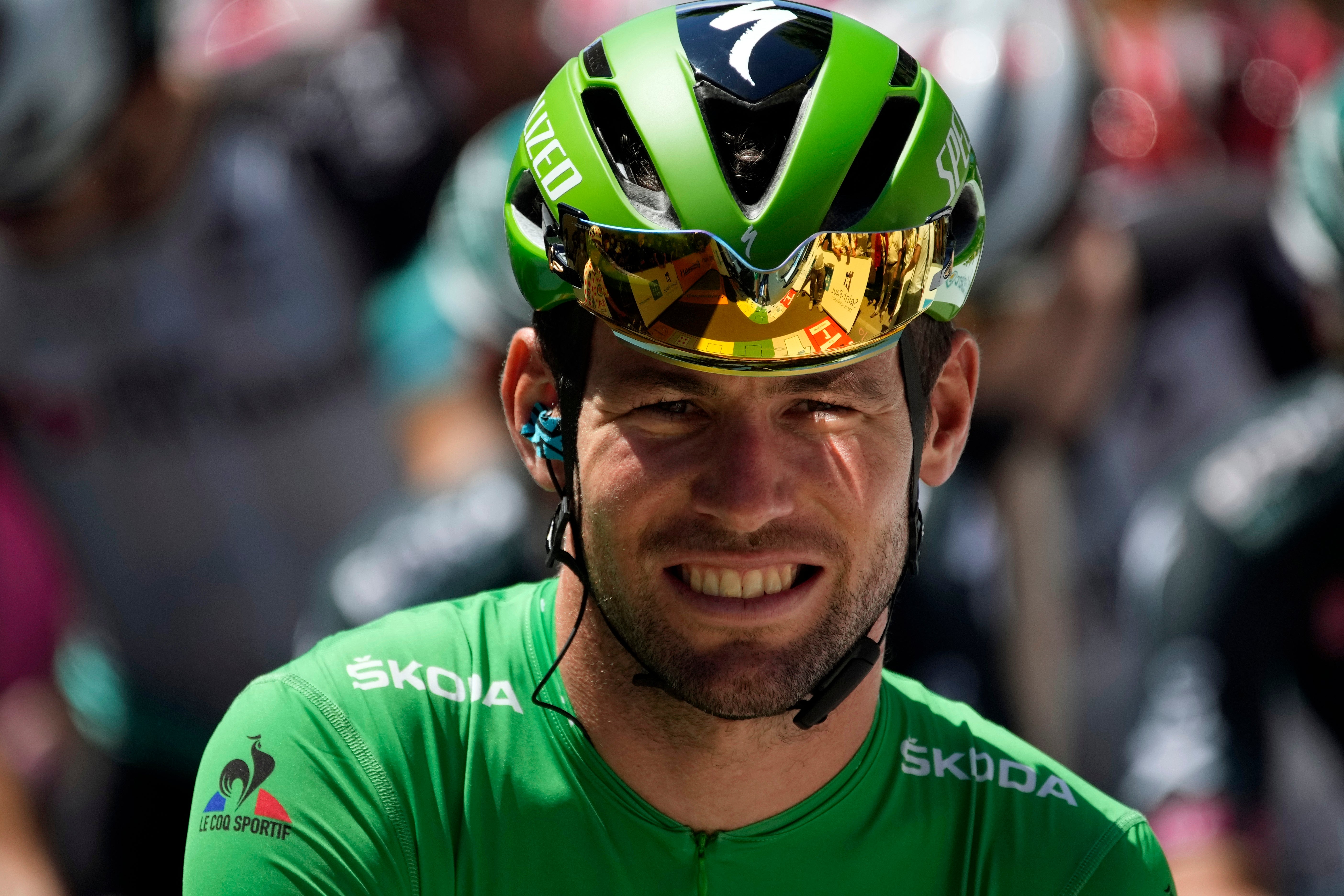What does Mark Cavendish’s joint-stage wins record at the Tour de France mean?
It was the Manxman’s fourth stage win of the 2021 Tour as his remarkable return to form continued.

Mark Cavendish has matched the Tour de France stage wins record with victory in Carcassonne on Friday moving him level with the great Eddy Merckx on 34.
It was the Manxman’s fourth stage win of the 2021 Tour as his remarkable return to form continued.
Here, the PA news agency takes look at Cavendish’s road to glory, and what his achievement means.
How has he got here?
After an short-lived Tour debut in 2007, Cavendish started winning a year later and the victories came in floods. He took four in 2008, six in 2009 and five each in 2010 and 2011 as the HTC-Columbia team made the sprint stages look like a formality. It was conceivable to think the record might be coming in just a few years’ time but Cavendish’s strike rate dipped as new rivals emerged and crashes hampered his progress. A return to form saw him win four stages in 2016, but there followed several years impacted by illness and injury culminating in non-selection in 2019 and 2020. His career was conceivably over in the winter, but Cavendish has made the most of the lifeline the Deceuninck-QuickStep team gave him.
Should we have expected this?
Cavendish has been written off before and proven everybody wrong, but to simply say he has done it again underplays this achievement. The Epstein-Barr virus dogged Cavendish for two years, and came at a time in his career when he might have been expected to be slowing down anyway. Cavendish returned to Deceuninck-QuickStep this year despite not having a win of any kind since February 2018, and was not in line for Tour selection until injury struck Sam Bennett. To get back and pick up the victories he did in the Tour of Turkey in April was already enough to cap a remarkable story, but to be celebrating four stages at the biggest bike race on earth is up there with the great sporting comebacks.
What does matching Merckx mean?
Merckx was a very different rider in a very different time as many, including Cavendish himself, would be quick to point out. The Belgian’s stage victories helped him to win the race overall five times in the late 1960s and 70s, holding the record equally with Bernard Hinault, Jacques Anquetil and Miguel Indurain. Merckx is, by pretty much any measure, the greatest cyclist who ever competed, ‘the Cannibal’ who devoured his opponents and won a staggering percentage of the races he entered on any terrain. Cavendish would not claim to be his equal, but that merely emphasises the achievement of matching any record Merckx ever set.
Will this ever be challenged?
Never say never, but it is safe to say it will not happen any time soon. On the list of active riders, Peter Sagan is the next on the list of Tour stage winners with 12, with the 31-year-old having taken the last of those in 2019. Next is Andre Greipel, 38, at 11. To get where he has, Cavendish has beaten three different generations of sprinters – when he won his first Tour stage in 2008, Erik Zabel was third; when he won stage four last week, Erik’s son Rick finished 15th. This longevity sets Cavendish apart.
Can Cavendish break the record this year?
Having matched Merckx’s tally, Cavendish appears to have two chances to move clear in this Tour, but to make it to either he must navigate some difficult days in the Pyrenees. Get through those and there are two chances at the back end of the final week. The first is on stage 19, when a sprint finish is anticipated in Libourne at the end of a 207km stage from Mourenx. The second, of course, is the unofficial world championships for sprinters, on the Champs-Elysees in Paris. There could be no better place to write history.